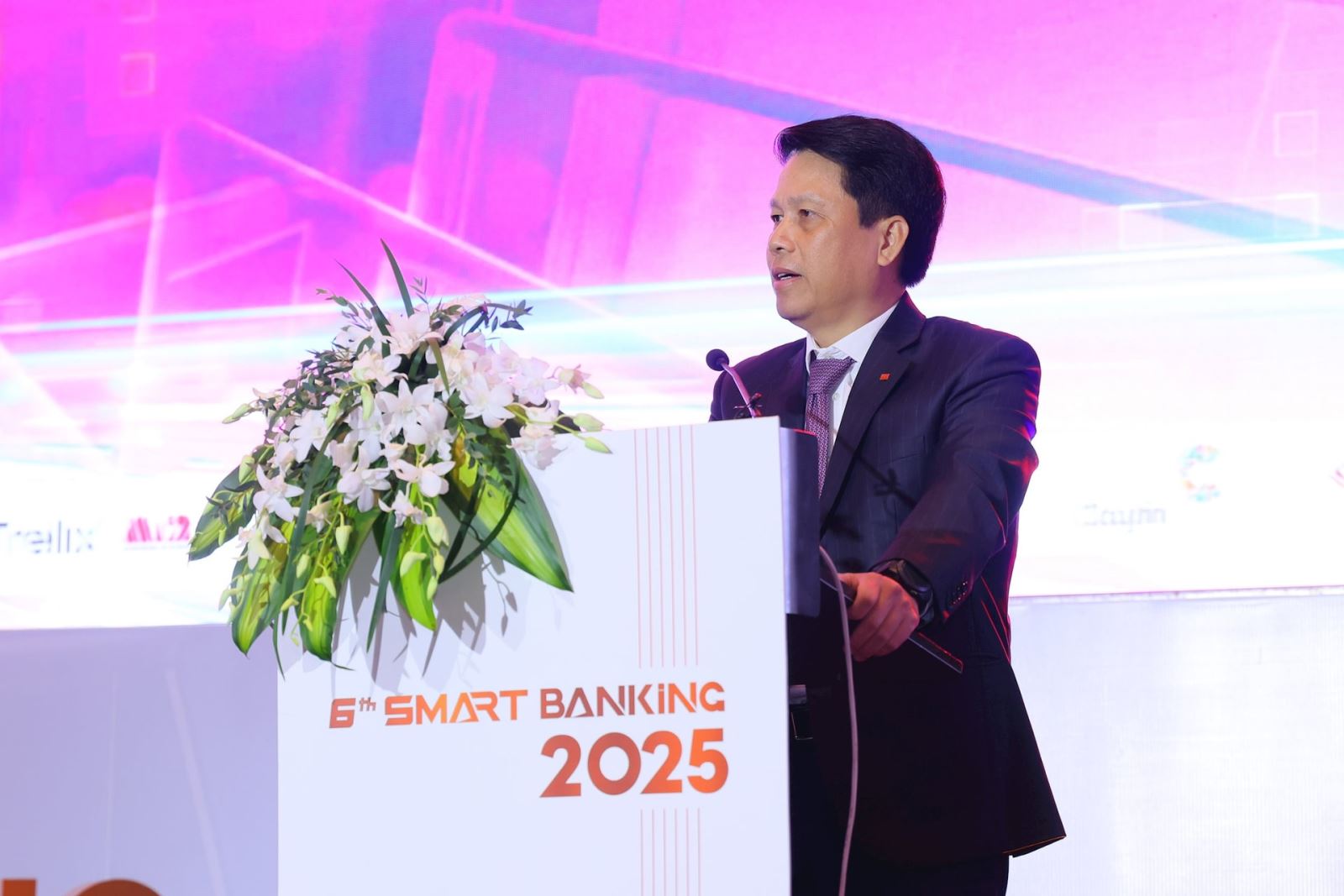
With the "huge" number of transactions, Deputy Governor Pham Tien Dung said that ensuring banking security and maintaining safe operations is always an important issue of concern for the banking industry.
According to Vice President and General Secretary of the Vietnam Banks Association (VNBA) Nguyen Quoc Hung, the harmonious combination of: "Strategy - Data - Technology - People" is based on the foundation of proactive risk management and compliance. From there, we aim for a sustainable digital banking ecosystem, innovative but safe, fast but standardized, personalized but protecting privacy, open connection but tightly controlling systemic risks.
In recent times, Vietnam has witnessed the strong development of the digital financial services ecosystem, in which non-cash payments have expanded; cooperation models between banks - Fintech - digital platforms have grown; data analysis capacity, application of artificial intelligence (AI) and machine learning have been promoted in credit appraisal, risk management, fraud prevention, operation optimization, and multi-channel customer care.
Many credit institutions (CIs) have moved from digitizing each process to redesigning the entire customer journey; from “owning discrete data” to “managing data as a strategic asset”; from passive reaction to forecasting and proactively suggesting needs.
To date, most basic banking services have been digitized on electronic channels; many banks have recorded over 95% of transactions conducted via digital channels instead of at traditional counters. Many basic operations have been 100% digitized (savings deposits, term deposits, opening and using payment accounts, opening bank cards, e-wallets, money transfers, loans...).
To date, nearly 87% of Vietnamese adults have bank accounts; the value of non-cash payments (TTKDTM) is 25 times higher than GDP. Mr. Nguyen Quoc Hung gave an example that in the first 7 months of 2025 compared to the same period in 2024, non-cash transactions via QR codes increased by 66.73% in quantity and 159% in value.
Vietnam is also a pioneer in connecting cross-border retail payments via QR codes with Thailand, Cambodia and Laos, aiming to expand in the Asian region. The State Bank of Vietnam is the agency that has led the administrative reform rankings of ministries and ministerial-level agencies for 7 consecutive years.
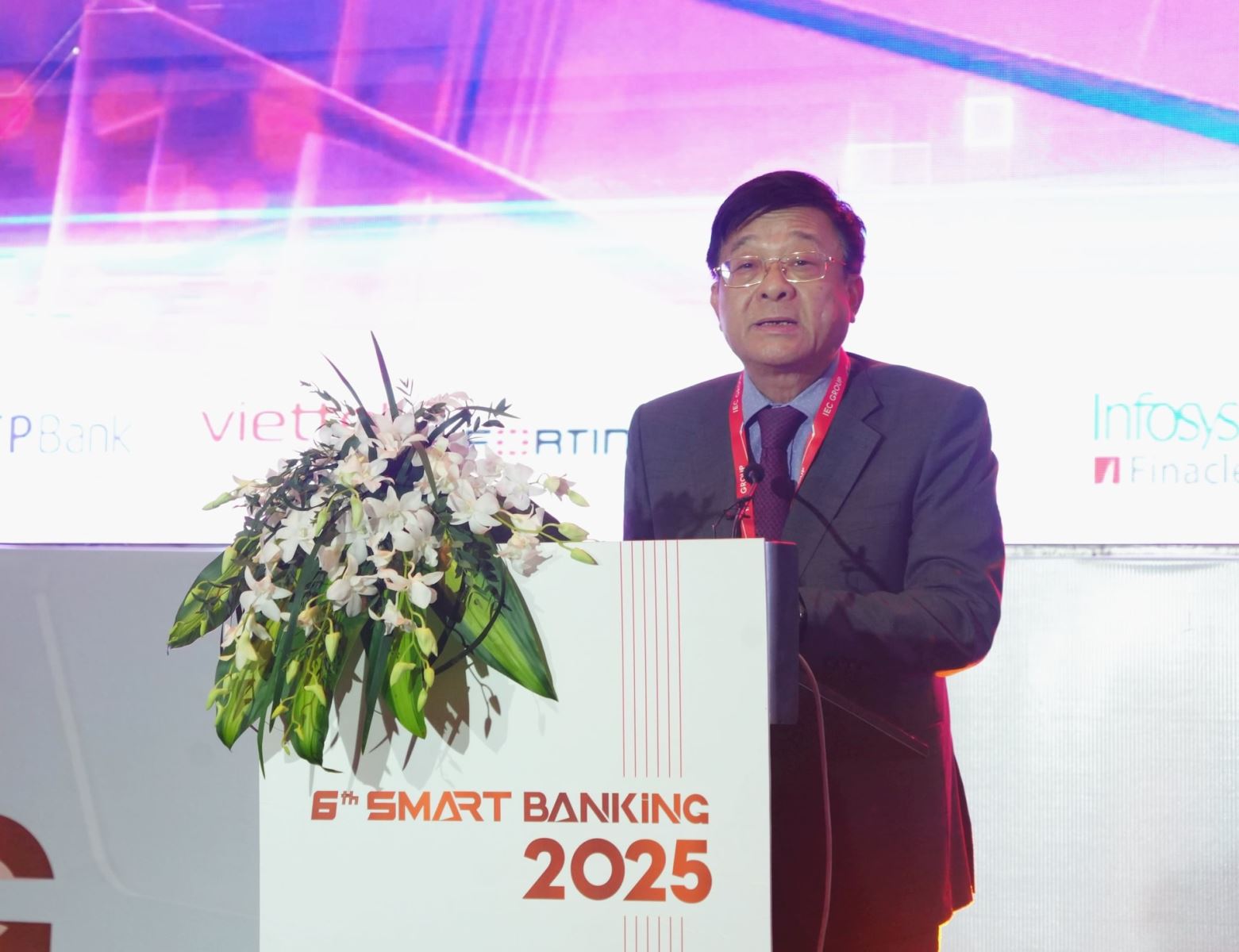
However, according to Dr. Nguyen Quoc Hung, to achieve "breakthroughs" in 2025 and the following stages, Vietnam needs to simultaneously solve many intertwined problems: standardizing and cleaning data at the system-wide scale; building a unified data architecture instead of overlapping solutions; establishing a consistent data governance - security - privacy - data ethics framework; enhancing the ability to interconnect controlled data between banks and identification platforms, population data, businesses, e-commerce, insurance, telecommunications, etc.
“Banks can increase customer access, create highly personalized products and services; at the same time, optimize risk detection and fraud prevention processes, improve loan processing and loan application processes, and enhance market prediction and analysis capabilities,” said a VNBA representative.
Up to now, many credit institutions have deployed solutions that allow customers to open payment accounts based on population data authentication; allow identification and verification of customer information using chip-based citizen identification cards or VNeID applications; clean customer information with the National Population Database; optimize the lending process with credit scoring solutions, multidimensional information authentication using population data, etc.
Through the Smart Banking 2025 Conference and Exhibition, Dr. Nguyen Quoc Hung hopes to form a higher consensus on strategic priorities for the coming period: Completing the shared data platform; expanding the scope of value-added digitalization instead of just transaction indexing; shaping the framework for model and data risk management; accelerating responsible personalization; strengthening customer trust through transparency, security, privacy protection and ethical data handling.
Speaking at the workshop, Deputy Governor Pham Tien Dung said that data and customers are independent, but in fact, they are not separate. Without customers, there is no data; and data, if not used, has no value. This is the core story of the banking industry.
Legally, the State Bank is one of the few ministries and branches that issue a system of Circulars to regulate the entire process of collecting, synthesizing, and analyzing data. In the banking industry, no data is collected outside this legal framework, from the statistical reporting system, credit information monitoring, the National Credit Information Center (CIC) system, anti-money laundering, to all business applications, all have Circulars regulating, serving as a legal basis for the entire industry.
The banking sector has deeply integrated with the National Population Database. The State Bank of Vietnam is also the first unit to issue a Circular on Open API (open application programming interface), allowing parties to connect banking sector data.
The Deputy Governor emphasized that data is the foundation but customers are the center. Therefore, in the current digital age, the banking industry must meet three factors: Creating good, smart applications for customers; effectively supporting customers; protecting the legitimate rights and interests of customers.
Explaining more specifically, the Deputy Governor said that the banking industry must provide truly good, smart, easy-to-use applications; at the same time, protect customers quickly, ensuring safety and convenience. Customer-centricity must be met from training, guidance to operation, everything must be smooth and seamless.
“The State Bank of Vietnam is the first agency to issue a Circular requiring all banks to develop standard applications, complying with international standards and norms to serve customers,” Deputy Governor Pham Tien Dung added.
Source: https://baotintuc.vn/kinh-te/he-thong-ngan-hang-ghi-nhan-hon-30-trieu-giao-dich-trong-mot-ngay-20250925151641631.htm






![[Photo] Prime Minister Pham Minh Chinh attends the groundbreaking ceremony of two key projects in Hai Phong city](https://vphoto.vietnam.vn/thumb/1200x675/vietnam/resource/IMAGE/2025/9/27/6adba56d5d94403093a074ac6496ec9d)












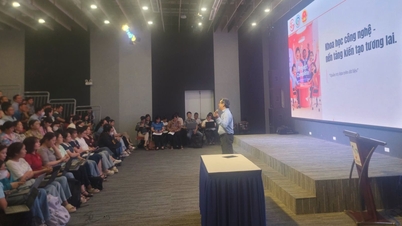


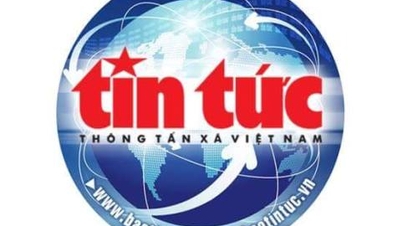
















































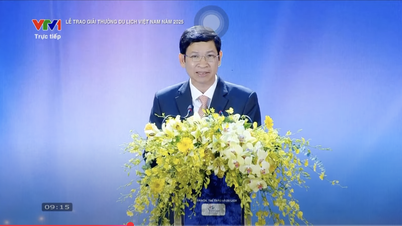



















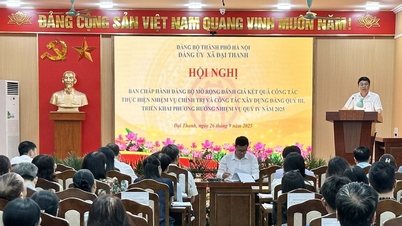
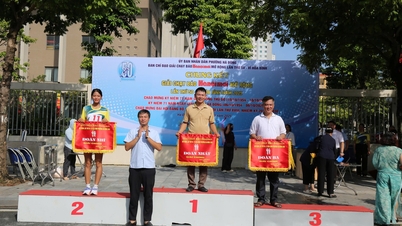














Comment (0)